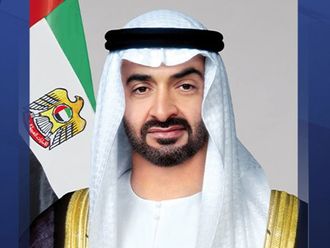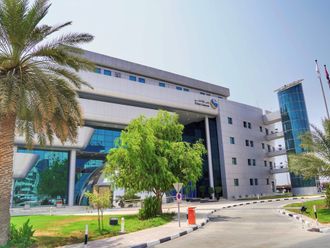Abu Dhabi: Charles Bolden, Administrator of Nasa, said the UAE will be their critical partner in space exploration.
“Together we are going to learn more and more about Mars’ atmosphere,” Bolden told the majlis of His Highness Shaikh Mohammad Bin Zayed Al Nahyan, Abu Dhabi Crown Prince and Deputy Supreme Commander of the UAE Armed Forces. Shaikh Mohammad attended the lecture, accompanied by a number of shaikhs and senior officials.
Bolden, who became the first African-American to hold the office in 2009, added the UAE is home to a good number of space scientists and that he would like to host some of them at Nasa.
“There is no shortage of people in the UAE in the space industry and I would like to take some of you to Nasa,” Bolden said.
He added he represented his government in signing an agreement on Sunday with the UAE’s Space Agency in the area of space science, operational earth observation and earth science, aeronautics, space operations and exploration, education, technology, safety and mission assurance. “We’ve been working with the UAE Space Agency for over a year just to get the pieces and parts in place to sign the agreement,” he said.
The framework agreement with the UAE also aims at cooperating with the UAE in the area of earth observation sciences. “I don’t know about you, but we are very excited about that,” he said.
Bolden spoke about Nasa’s efforts to go to Mars and its current efforts to send people to the planet.
“Going to Mars is very difficult and takes a lot of planning,” he said, adding that Nasa plans to send people to Mars and bring them back to earth. The plan is to send people to Mars by the 2030s, he said.
The UAE plans to construct an unmanned probe to reach the Red Planet by 2021. The launch of the Hope probe will make the UAE the first Arab country to reach the Red Planet.
Bolden spoke of the importance of studying our own home planet, Spaceship Earth, “highlighting upcoming Earth observation missions, including UAE’s KhalifaSat, and the partnerships here on planet Earth that make exploration possible for future generations”.
He talked of how the human Journey to Mars will need to be a sustained global effort that will require involvement from countries across the globe, including the UAE, to succeed. He described the role robotics can play in investigating planets, including Mars, and described the importance of satellite missions such as the Emirati Mars Mission Hope.
Bolden said as one of the steps towards developing a sustainable journey to Mars, space scientists are already growing some vegetables in the International Space Station and the plan is to even produce protein and other edible and non-edible material.
Bolden also discussed other feats that Nasa is planning to achieve. “Some of the technologies Nasa is working on is to latch a space shuttle into an asteroid and then gear the asteroid so it revolves around the moon where astronauts can work, and possibly develop some type of mining in space.
On the area of choosing astronauts, he said the criteria have changed over time. Some of the changes include the ability to speak foreign languages and control robotic equipment.
He said Voyager, which was launched in the 1970s, has already left our solar system and has for a year been floating in the interstellar realm.












